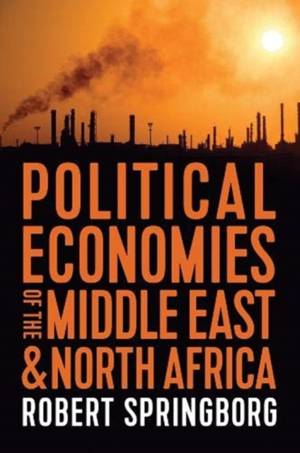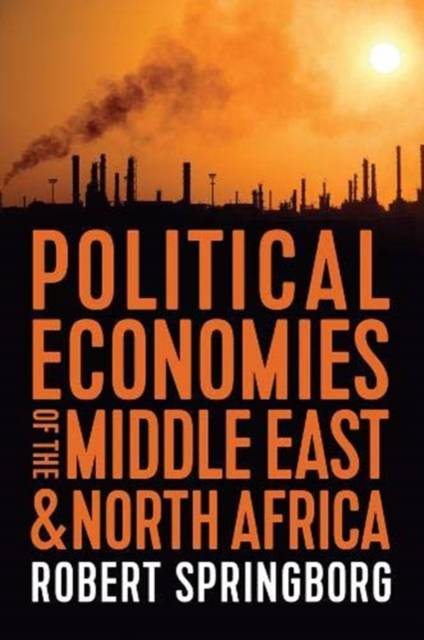
- Afhalen na 1 uur in een winkel met voorraad
- Gratis thuislevering in België vanaf € 30
- Ruim aanbod met 7 miljoen producten
- Afhalen na 1 uur in een winkel met voorraad
- Gratis thuislevering in België vanaf € 30
- Ruim aanbod met 7 miljoen producten
Zoeken
€ 94,95
+ 189 punten
Uitvoering
Omschrijving
Despite its oil wealth, the Middle East and North Africa is economically stagnating. Growth rates are comparatively unfavorable and insufficient to substantially improve citizens' lives. Whether this economic inertia can be overcome or will continue into the indefinite future is a vital question that confronts both the region and the world.
In this book leading Middle East scholar Robert Springborg discusses the economic future of this region by examining the national and regional political causes of its contemporary underperformance. Overgrown, weak MENA states, he explains, have been unable to escape their unfavorable historical legacies. "Limited access orders" and the deep states based in the means of coercion that underpin them undermine state capacities and constrain beneficial, autonomous political and economic activity. Increasingly challenged by their populations, MENA states face the daunting and so far unmet challenge of diversifying non-sustainable, rentier political economies away from direct or indirect dependence on oil and gas revenues. Stagnation of those revenues and failure to generate alternative income sources, combined with rapid population growth, presents the region with an economic challenge that can only be overcome by profound political change.
In this book leading Middle East scholar Robert Springborg discusses the economic future of this region by examining the national and regional political causes of its contemporary underperformance. Overgrown, weak MENA states, he explains, have been unable to escape their unfavorable historical legacies. "Limited access orders" and the deep states based in the means of coercion that underpin them undermine state capacities and constrain beneficial, autonomous political and economic activity. Increasingly challenged by their populations, MENA states face the daunting and so far unmet challenge of diversifying non-sustainable, rentier political economies away from direct or indirect dependence on oil and gas revenues. Stagnation of those revenues and failure to generate alternative income sources, combined with rapid population growth, presents the region with an economic challenge that can only be overcome by profound political change.
Specificaties
Betrokkenen
- Auteur(s):
- Uitgeverij:
Inhoud
- Aantal bladzijden:
- 247
- Taal:
- Engels
Eigenschappen
- Productcode (EAN):
- 9781509535590
- Verschijningsdatum:
- 6/04/2020
- Uitvoering:
- Hardcover
- Formaat:
- Genaaid
- Afmetingen:
- 152 mm x 231 mm
- Gewicht:
- 544 g

Alleen bij Standaard Boekhandel
+ 189 punten op je klantenkaart van Standaard Boekhandel
Beoordelingen
We publiceren alleen reviews die voldoen aan de voorwaarden voor reviews. Bekijk onze voorwaarden voor reviews.











